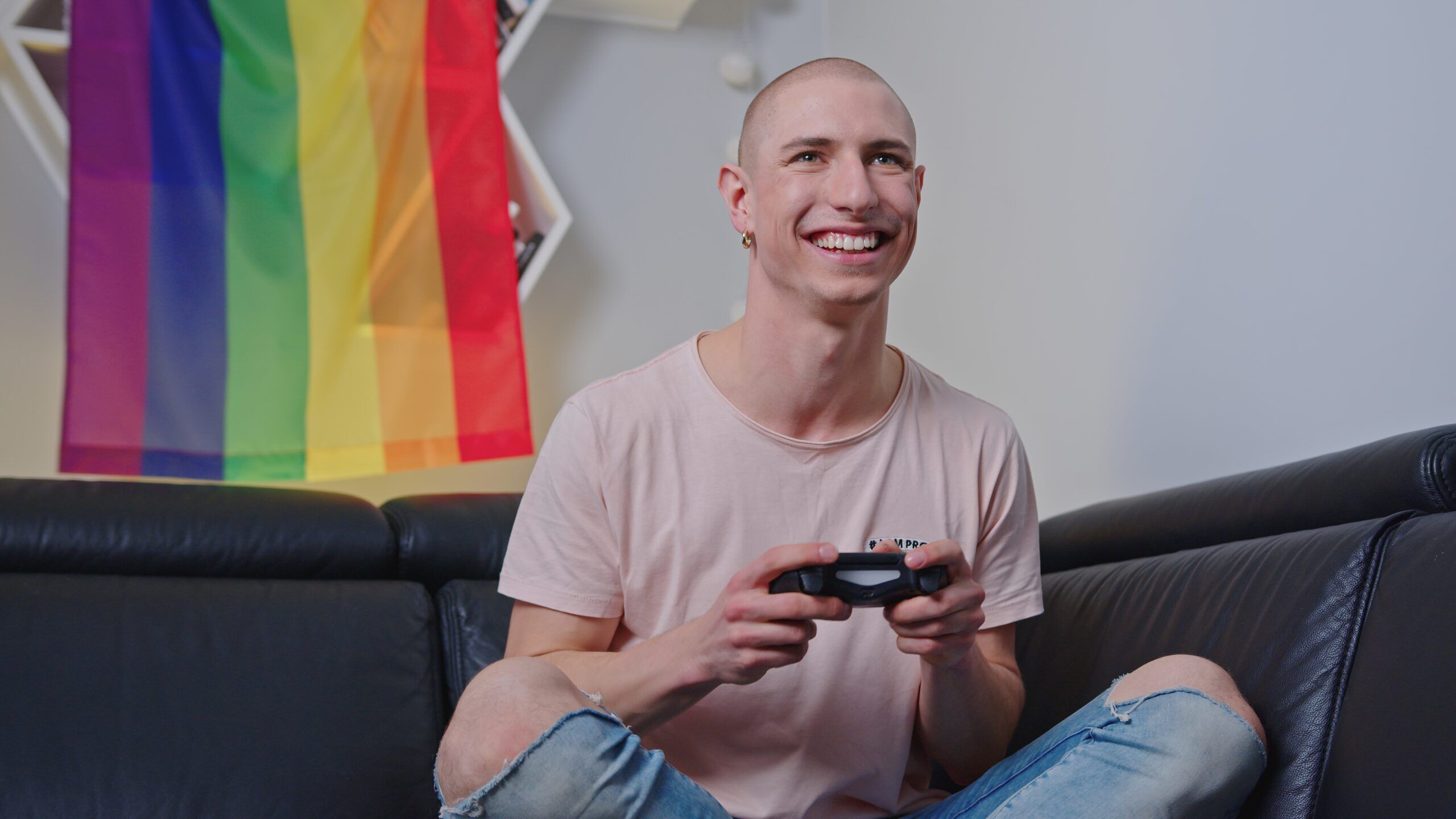Gays love video games, but video games don’t love gays. It’s an all too rare treat when a game includes options for queer expression, whether it’s in character customization, romantic storylines, or general LGBTQ+ themes. Now, a new report from GLAAD proves that gamers are as gay as they come, and the games they play aren’t keeping up.
First things first, our eyes aren’t deceiving us: video games are way less gay than other forms of media. According to GLAAD, less than 2% of all video games on the market contain LGBTQ+ content. Though there are disproportionately few LGBTQ+ games, the same can’t be said of LGBTQ+ gamers.
Almost one in five gamers (17%) identify as LGBTQ+, says the study. That number is even higher among gamers under age 35, with 25% or one in four gamers identifying as queer, a higher proportion than the general population. But if gamers are, in fact, gayer than the world at large, why are video games often so aggressively straight?
Related:
A brief and very necessary history of Pokemon zaddies
Some of us are on the hunt for more elusive game: the Pokemon zaddy.
Entertainment with an edge
Whether you’re into indie comics, groundbreaking music, or queer cinema, we’re here to keep you in the loop twice a week.
It seems as though game developers are making games for a stereotype of a gamer: a straight, white dude yelling curse words into a headset while gunning down zombies. But as the gaming community grows, that stereotype is less and less accurate. Queer people, says the study, are especially drawn to video games because of their elements of escapism and fantasy.
“The interactive nature of games, the opportunity to build community in gaming, and the long history of LGBTQ game industry professionals makes this medium a uniquely powerful tool for LGBTQ people to safely discover, connect, and express themselves,” Sarah Kate Ellis, GLAAD’s president and CEO, said in a statement. “Particularly for LGBTQ gamers, gaming can not only be an escape and source of entertainment, but also an important outlet of self-expression.”
Related:
Princess Peach Has a New Switch Game. Here Are 5 Other Queens Who Should Have One Too
Princess Peach’s solo Switch game is on the horizon, but there’s definitely room for more video game queens to have their solo video game throne.
Even non-queer gamers are on the side of increasing queer representation in games. Of non-LGBTQ+ gamers, more than 60% said that they’re not bothered by games with gay, lesbian, bisexual, or transgender protagonists, and 70% say they don’t mind if a character can be made queer through customization.
Meanwhile, queer gamers are 4 to 5 times more likely to buy or play a game because it lets them play as an LGBTQ+ character. Clearly, queer gamers are an untapped market for game developers — and it’s about time they caught up to their audience.
“The resistance toward LGBTQ content in games is waning, as each successive generation of gamers is more diverse and more open to seeing LGBTQ representation in their games,” reads GLAAD’s report. “The message is clear: gamers want more inclusive LGBTQ representation in their games. The industry must become more inclusive.”
Don't forget to share:
Help make sure LGBTQ+ stories are being told...
We can't rely on mainstream media to tell our stories. That's why we don't lock our articles behind a paywall. Will you support our mission with a contribution today?
Cancel anytime · Proudly LGBTQ+ owned and operated
Read More in Entertainment
The Latest on INTO
Subscribe to get a twice-weekly dose of queer news, updates, and insights from the INTO team.
in Your Inbox

















